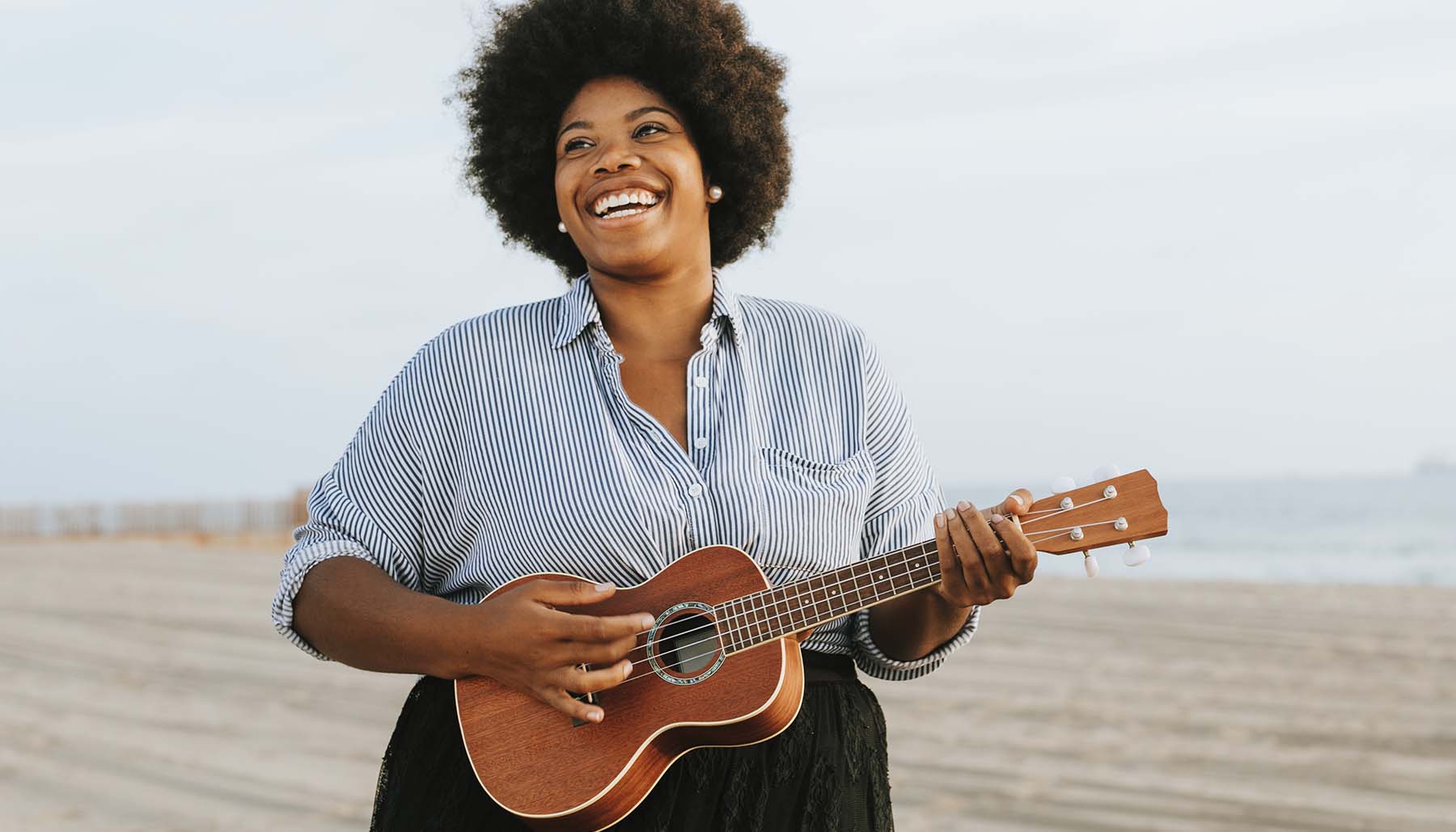Music is one of the closest things to magic human beings can experience. But for many people, playing a musical instrument is something they consider briefly before deciding it’s not for them. By doing so, they miss out on a vast array of benefits, from building more resilient brains to relieving stress.
A Hard-Earned Lesson
I took piano lessons in middle school, but by the time I reached high school, something became clear: I wasn’t ever going to be great at it. It wasn’t until more than a decade later that I tried picking up a guitar. I’ll never be great at that, either, but by then I’d realized a truth even more important. You don’t have to be good at something to enjoy it.
Since then, I’ve discovered that the ukulele is a better match for my hands than a guitar. I don’t practice every day, and I’ll probably never perform in front of an audience. But I love to play and sing my favorite tunes in the privacy of my own home.
As it turns out, my hobby is a lot more than just a fun way to pass the time. Playing an instrument encourages deep breathing and relaxation–both important for stress reduction. The coordination and focus needed help keep my brain active and engaged. That’s something that’ll help me as I get older, too.
“What’s unique about playing an instrument is that it requires a wide array of brain regions and cognitive functions to work together simultaneously, in both right and left hemispheres of the brain,” Alison Balbag told National Geographic Magazine. She would know; Balbag is a professional harpist and is studying how music changes our brains.
How to Get Started Playing an Instrument
There really aren’t many downsides to playing an instrument, aside from cost. From my experience, you should buy a mid-tier instrument rather than one specifically targeting beginners. My first ukulele cost about $25 at Guitar Center, and it was so terrible that I nearly gave up on the whole thing.
Cheap instruments are usually made out of inferior materials. One of the biggest issues with inexpensive stringed instruments is that they fail to stay in tune. They may also sound bad–and not just to music snobs. If you can afford it, look for an upgrade from the “student” or “entry” model instruments available at big box stores.
Speaking of stores, please consider supporting your local music store. They can order pretty much anything you want if it’s not in stock, plus the clerks are almost always very knowledgeable and can help you find the right fit. My local store will set up your instrument for free if you buy it from them, ensuring that everything is aligned and calibrated correctly.
When you’re just starting out, you may find that online tutorials are just as helpful as costly lessons. There are tons of amazing teachers on YouTube for every type of instrument. You can also find simplified chords or tablature (AKA tabs) for many different instruments so that you can start playing your favorite songs right away. If you do decide to take lessons, there are countless options for Zoom-based one-on-one sessions with teachers anywhere in the world.
As you practice, you’ll get better. You’ll start to build up muscle memory the more you play. And remember that it’s okay if you never get “good” at your chosen instrument. This hobby is all about the journey, not the destination.
Now if you’ll excuse me, I’m gonna grab my ukulele and unwind for a while.













